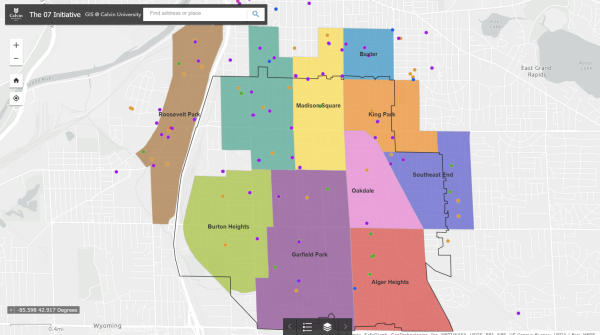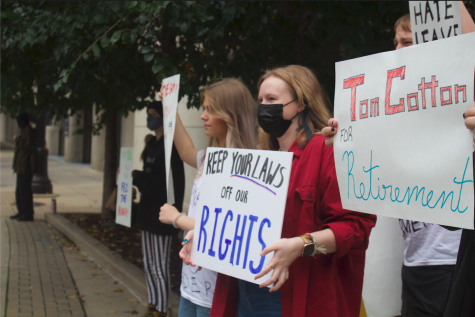Panel hopes to bring attention to human trafficking in West Michigan
The Acton Institute is holding a panel discussion about human trafficking in West Michigan on March 28 at 9 a.m. in the Mark Murray Auditorium. The event, entitled “Hidden No More: Exposing Human Trafficking in West Michigan,” will focus on the widespread effects of human trafficking in the area and explore ways the community can respond to the problem.
Elise Hilton, a communications specialist for the Acton Institute, said that the Acton Institute hopes that learning about human trafficking in this area will encourage people to work together to fight against it.
“A lot of times when we talk about human trafficking, people think about brothels in Thailand or India. I think it’s important for people to know that this is happening in their community, too. If they know it’s happening, I believe that they will want to help make a change,” Hilton explained.
Despite the magnitude of the problem — economically, human trafficking is the second largest illegal activity in the United States — Hilton says very little research has actually been done on human trafficking in the U.S.
“The Michigan State Attorney General’s office issued a report on human trafficking at the beginning of 2014. One of the major findings was that we have virtually no data on the problem in Michigan. There is no scholarly work being done. There are no records in terms of police. The police department only keeps a record of human trafficking cases that involve kidnap or murder,” Hilton explained.
Because of the need for research, Hilton hopes this event encourages area scholars to take a closer look at human trafficking.
“One of the things I’d like to see come out of ‘Hidden No More’ is for people in academia to start looking at this. It would be great if they would start collecting data.”
Hilton would also like to see those who already work with victims of human trafficking, like social workers and those in health care, make a more coordinated effort to combat human trafficking.
“There are a few people in GR working with human trafficking victims and survivors, but we don’t have a lot of support,” Hilton said.
Currently, there are two nonprofits focused on helping victims of human trafficking in the Grand Rapids area: Sacred Beginnings and the Manassah Project, which is run by Wedgewood Christian services.
Both Leslie King, the founder of Sacred Beginnings, and Andy Soper, the founder of the Manassah project, will serve on the panel.They will be joined by the chief deputy at the Michigan State General Attorney’s office, Carol Isaacs, as well as State Senator Judy Emmons (R-33rd district) and Becky McDonald of Women at Risk International. WZZM Weekend morning co-anchor Jennifer Pascua will moderate the discussion.
In addition to fostering research, the event seeks to give a human face to trafficking and encourage attendees to spread awareness about it in their own communities.
“We want people to know that when we’re talking about human trafficking, we’re talking about somebody’s sisters, somebody’s brothers and somebody’s children. And their lives are being damaged by poor choices other people are making. So our goal is that we educate people about how human trafficking happens and arm them with the information they need to inform others in whatever community they have influence in,” Hilton explained.
Entrance to the panel is free, but because seating is limited, those interested in attending “Hidden No More” should email jmorton@acton.org to register.







